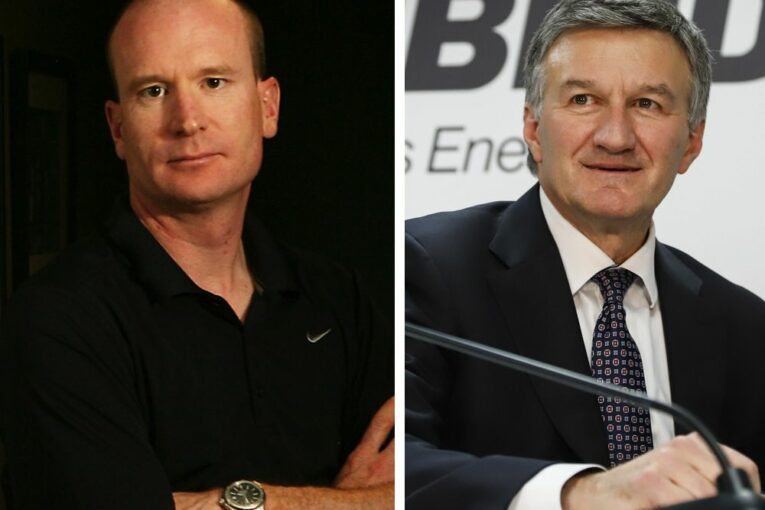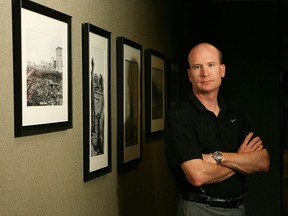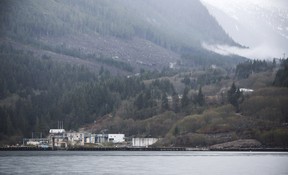
A different kind of energy transition is taking place in Calgary as two longtime leaders in the sector — and vocal defenders of the Canadian oil and gas industry — have signalled this week their plans to retire.
In the words of another former oilpatch executive, “their absence will create a hole” in the public discussion that surrounds energy development in the country.
On Tuesday evening, Peyto Exploration & Development CEO Darren Gee announced he will step down at the end of December after a 16-year run as CEO of one of the country’s largest natural gas producers.
A day earlier, Enbridge CEO Al Monaco said he will retire Jan. 1, winding up more than a decade heading the continent’s largest pipeline company.
Gee and Monaco are two of the Canadian energy industry’s longest-serving chief executives. They’re well known across the sector, not only for speaking up about their corporate plans but their willingness to speak out about the obstacles and opportunities facing the industry.
“Both weren’t afraid to take on big challenges that were of national importance,” said Tim McMillan, former head of the Canadian Association of Petroleum Producers.
“They recognized the bigger picture . . . Both of them knew the potential Canada had — and still has — and the role they were playing in it, that they couldn’t do it themselves. They needed to communicate with industry partners and the Canadian public.”
For Monaco, it’s critical that CEOs and the sector be willing to step up to the microphone and communicate, to build trust with people at a local level about delivering energy safely and reliably.
Recommended from Editorial
-

‘We could get lapped here by the Americans’: Enbridge exec urges Ottawa to respond to U.S. climate package
-

As global natural gas prices soar, Alberta producers face ‘astronomical’ discount
-
‘It’s good to be back’ in stock index, energy firms say, amid higher hopes for 2022
“You have to be relentless, not because you’re on a script, but because you believe in the energy industry. Canada has so much to offer on this front that I think it’s incumbent upon everybody to speak publicly,” he said in an interview.
Enbridge’s current board chair, Greg Ebel, will take over from Monaco as CEO of the Calgary-based company.
At Peyto, the country’s fifth-largest gas producer, Gee will be replaced by current company president Jean-Paul Lachance.
Gee joined Peyto in 2001 as vice-president of engineering. Five years later he became company president, before taking the helm as CEO in 2007.
He will remain a director of the company.
“It’s just a personal decision. I’m turning 55 this year, so it’s time for Freedom 55,” Gee said in an interview.
“It was a very planned succession. We have a lot of bench strength . . . and we’re at a good place in Peyto, the company is very strong.”
Founded in 1998, Peyto grew from a small junior company to reach production of 100,000 barrels of oil equivalent per day by 2015, mainly expanding through the drill bit.

As CEO, Gee often tackled thorny issues facing natural gas producers in Western Canada, including infrastructure bottlenecks and problems that have seen Alberta gas trade at a huge discount to benchmark U.S. prices.
He’s also been vocal about the need for Canada to promote liquefied natural gas (LNG) developments.
Peyto joined forces with domestic natural gas producers to create Rockies LNG Partners, which formed an alliance with Western LNG and the Nisga’a Nation to advance the proposed Ksi Lisims LNG Project in northern British Columbia.
Gee’s monthly “president’s report” to investors on the company’s strategy gained a broader industry following, offering a critical assessment of issues confronting the industry.
“He wasn’t afraid to push buttons to advocate for Canadian energy and called out frustrations, especially regulatory frustrations, in his monthly commentary,” said analyst Jeremy McCrea of Raymond James.
Gee said he initially wrote the report for directors, but chair Don Gray suggested sharing it with investors. Once online, it garnered attention.
Despite the challenges created by volatile commodity prices, the need to decarbonize, government policies and the shrinking size of Canada’s junior oil and gas sector, Gee remains optimistic about the future, including the potential of LNG in the country.
“We have the resources, we have the expertise, we have the know-how,” he said. “There’s no reason why we can’t be a major player when it comes to natural gas globally.”

LNG is also an issue Enbridge’s retiring CEO has discussed for years. The company agreed in July to invest US$1.5 billion and acquire a 30-per-cent stake in the Woodfibre LNG project near Squamish, B.C.
Even at Enbridge’s investor day back in 2011, Monaco — then executive vice-president — noted the company was talking with potential producers about sending LNG from Canada abroad.
The following year, he was named the pipeline company’s CEO. Within weeks, he gave speeches to the Toronto Board of Trade and the TD Calgary Energy Conference.
“As an industry, I think we need to engage communities early and often, and do a better job of explaining the benefits at the local level,” he said at the time.
During his tenure, Enbridge acquired Houston-based Spectra Energy Corp. in 2017 for $37 billion, making it the biggest foreign purchase by a Canadian company at the time.
Given the company’s size, it’s not a surprise he found himself in the middle of a polarized debate over pipeline development in North America, including the company’s unsuccessful attempt to build Northern Gateway, but also its eventual success in completing the massive Line 3 Replacement Project.
In May, Monaco again touted the future of LNG for the country during a speech to the Canadian Club in Toronto and described how the world had entered an energy crisis.
“In our case in Canada here, we have a responsibility to really get focused on global energy security for a whole bunch of reasons,” Monaco, 62, said Thursday.
“Our country and our leadership in business need to be proud of our industry. We need to be capitalizing on the competitive advantages — enormous competitive advantages — that Canada has . . . I look at what we have in this country and it’s obvious that we should play a bigger role.”
Chris Varcoe is a Calgary Herald columnist.
You can read more of the news on source
